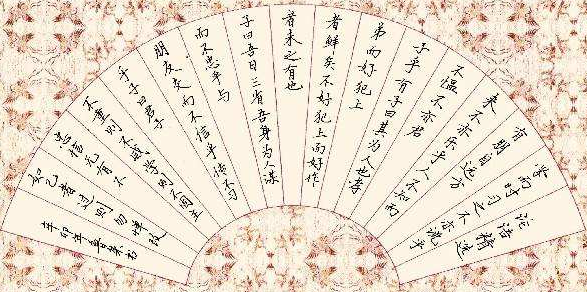"For him," said the Master, "the city of Pien, with three hundred families, was taken from the chief of the Po family,
曰:“人也。奪伯氏駢邑三百,
who did not utter a murmuring word, though, to the end of his life, he had only coarse rice to eat."
飯疏食,沒齒無怨言。”
The Master said, "To be poor without murmuring is difficult, to be rich without being proud is easy."
子曰:“貧而無怨難,富而無驕易。”
The Master said, "Mang Kung-ch'o is more than fit to be chief officer in the families of Chao and Wei, but he is not fit to be great officer to either of the states Tang or Hsieh."
子曰:“孟公綽為趙、魏老則優(yōu),不可以為滕、薛大夫。”
Tsze-lu asked what constituted a COMPLETE man.
子路問成人。

The Master said, "Suppose a man with the knowledge of Tsang Wu-chung, the freedom from covetousness of Kung ch'o, the bravery of Chwang of Pien, and the varied talents of Zan Ch'iu;
子曰:“若臧武仲之知、公綽之不欲、卞莊子之勇、冉求之藝;
add to these the accomplishments of the rules of propriety and music; such a one might be reckoned a COMPLETE man."
文之以禮樂,亦可以為成人矣。”
He then added, "But what is the necessity for a complete man of the present day to have all these things?
曰:“今之成人者何必然?
The man, who in the view of gain, thinks of righteousness, who in the view of danger is prepared to give up his life and who does not forget an old agreement however far back it extends,
見利思義,見危授命,久要不忘平生之言,
such a man may be reckoned a COMPLETE man."
亦可以為成人矣。”













